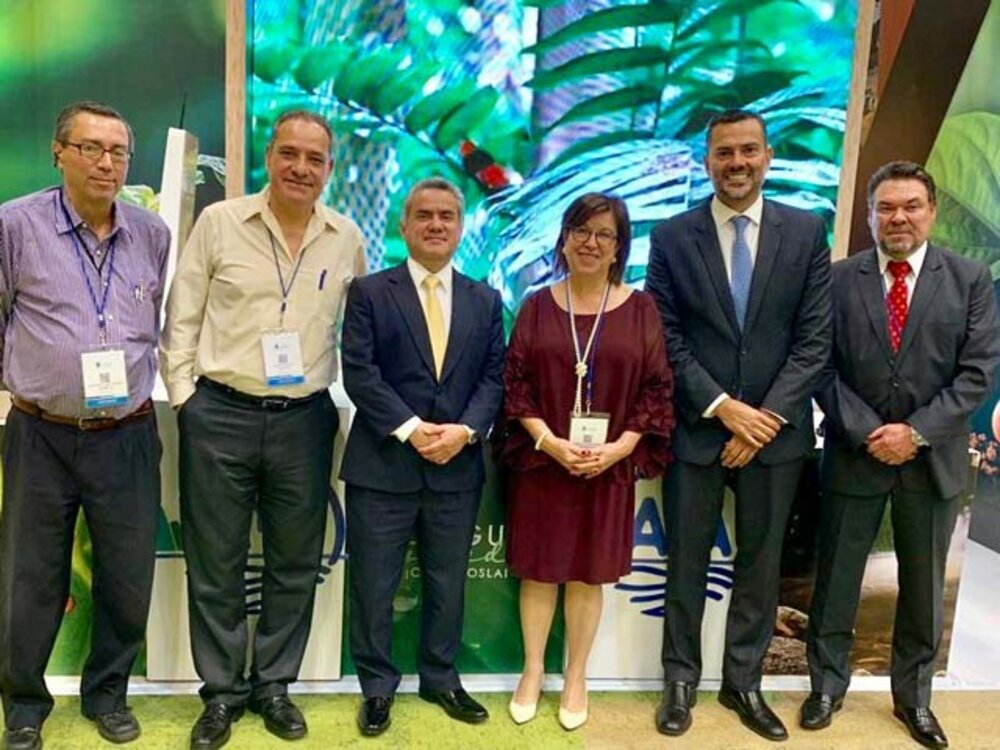CABEI participates in V LATINOSAN Sanitation Conference

CABEI promotes initiatives that contribute to fostering new opportunities for cooperation and business among the actors of the sector.
Heredia, Costa Rica, April 2, 2019.- With the presence of various authorities and sectors, the V LATINOSAN Sanitation Conference was inaugurated with the participation of the Central American Bank for Economic Integration (CABEI) as a sponsor.
The activity, which was organized by the Costa Rican Institute of Aqueducts and Sewers (AyA), promotes agreements and commitments among Latin American countries, within the framework of the Sustainable Development Goals (SDGs), that enable the reduction of the sanitation services gaps and ensure universal and equitable access to collective and individual systems in situ.
For CABEI Country Manager for Costa Rica, Mr. Mauricio Chacón, "It is very important to support this water sanitation event, since the Bank has an institutional synergy consolidated with the Costa Rican Institute of Aqueducts and Sewers since 2009, which has allowed the approval and successful execution of projects that have benefited the Costa Rican population, mainly from tourist areas such as Limón (Moín, Puerto Viejo, Limón Centro), Guanacaste and rural areas, including Zambito de Coto Brus, Mail País in Puntarenas, Quepos and Golfito."
He added that, "Additionally, it is considered that this activity is a great opportunity to generate technical financial alliances with other entities for the benefit of water sanitation in Central America."
The conference was attended by health, environment, potable water and sanitation technicians and professionals, who exchanged experiences and good sanitation practices in order to foster better water quality, both in urban and rural areas, generating spaces for discussion on the sustainability of water and sanitation services based on successful management models, required financing mechanisms, technologies and institutional frameworks.




